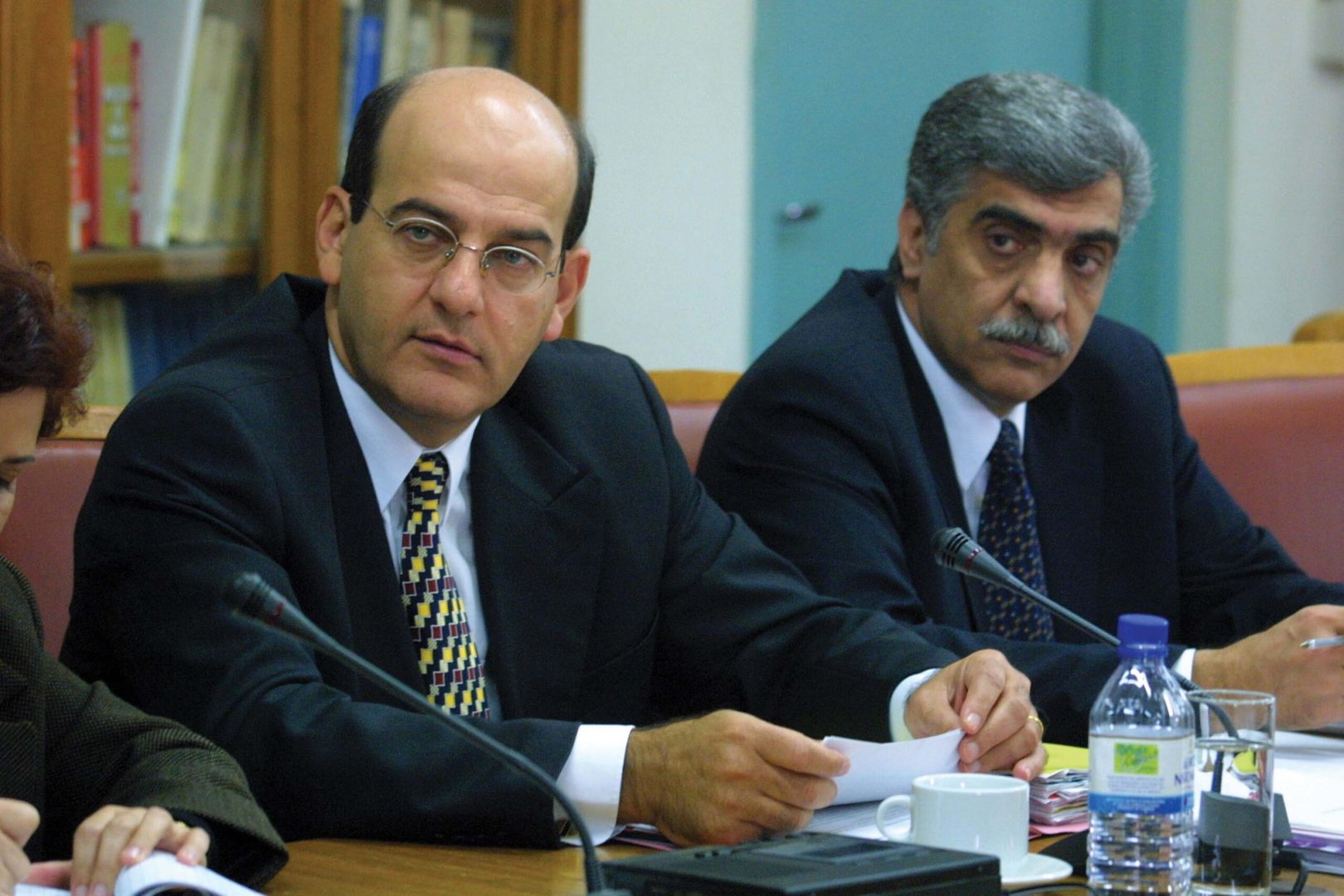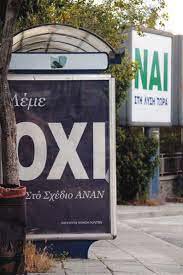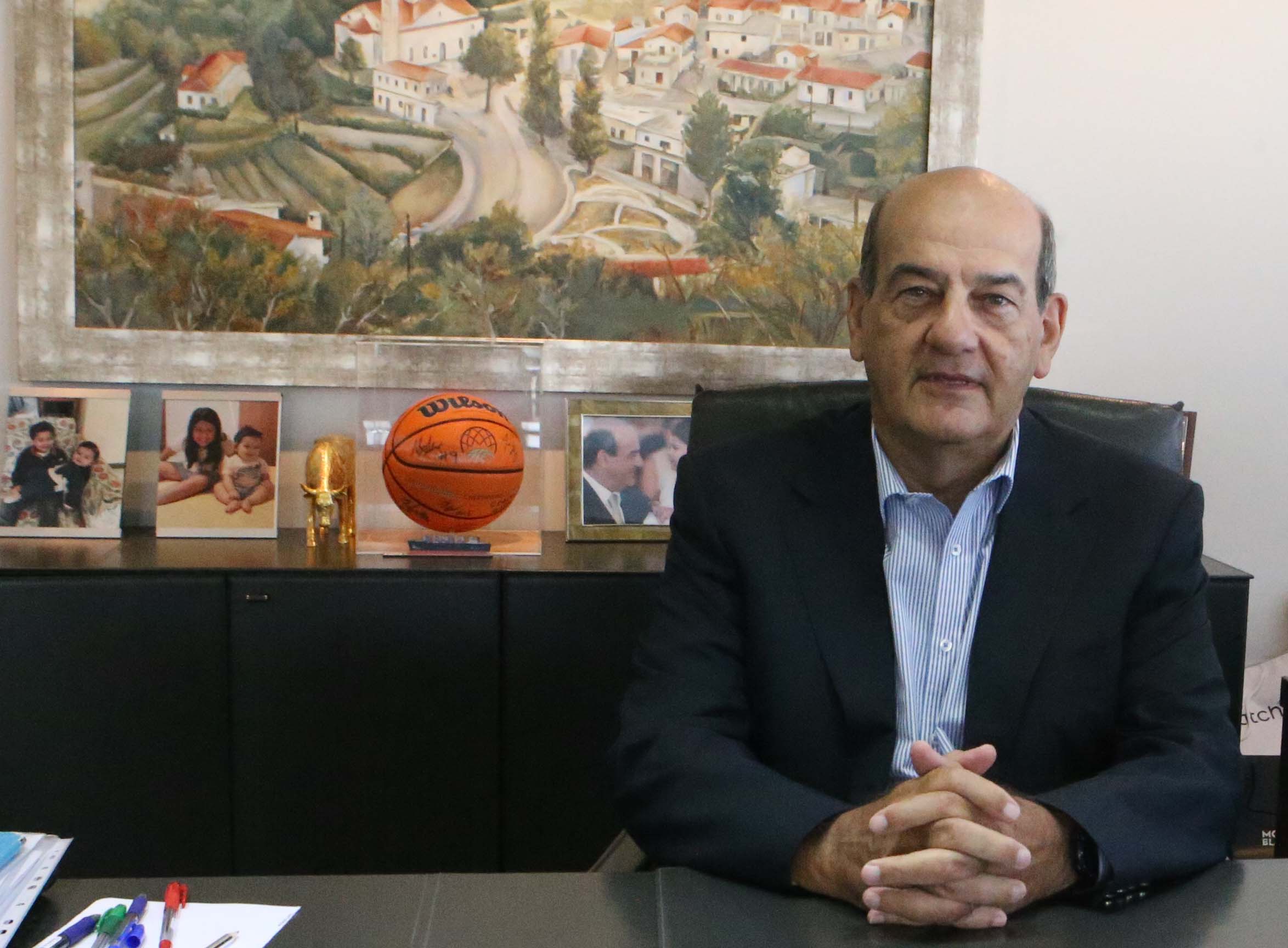Playing the game has seen a leader in his field stick firmly on the right side of the fine line between accounting and creative accounting. THEO PANAYIDES meets a modest good listener behind a new model for Cyprus’ economy
I get hustled on the way to Takis Klerides’ office in Nicosia. There’s a parking place down the road, with a half-empty field not far from it. I park in the field – but then, as I make my way up the road, an old man appears, claiming that the field is actually part of the parking place and I have to pay him. I’m a bit suspicious (there’s no sign, and he offers no ticket), but I do – then, as I keep walking, a neighbour discreetly approaches and informs me that the man is a fraud, and I shouldn’t have paid. But by then it’s too late.
From the sharp, unacceptable end of business to the affable, eminently respectable end. Takis knows all about money, and about hustles – though mostly from the vantage point of trying to prevent them. It’s a fine line between accounting and ‘creative accounting’ but he’s always been on the right side of the line, leading something of a charmed life, professionally speaking: a partner at chartered accountants KPMG at 30 (he’s now 71), a segue to consulting in 2003 with his own company, CMK Eurofinance Consultants. In between (1999-2003) he was minister of finance in the government of his namesake and distant relative Glafcos Clerides, having to deal – among other things – with the stock market bubble, another case where the normal course of business often overlapped with insider trading and general dishonesty. Like I say, it’s a fine line.
He’s sympathetic when he hears of my mishap, though amused more than shocked. Sympathetic amusement seems to be his stock-in-trade; he radiates bonhomie, his green eyes twinkling agreeably. He’s always worked well with others, whether in government or private practice. Accountancy and consulting are similar in that one enables and supports people, listens to their problems and supplies expert guidance – and Takis has always been a good listener. Being an accountant was always his plan, from the age of 13 or so, already “in business” as the third of six children helping out at his dad’s grocery store. “I didn’t know much about it at the time,” he admits. “But I knew that I could have a good career.”

Klerides in the House as Finance minister
He was settled by 30, as already mentioned, a partner at KPMG – and settled in his private life too, already married to his Hong Kong-born wife Nancy whom he met while studying in the UK (they have two children, a son and a daughter). The offer of the finance ministry seems to have been a mixed blessing, a diversion to a hitherto smooth path. “I was not a political animal,” he recalls. “I was not involved in politics. OK, my preference for a particular party” – that would be Disy – “was known, but I was not involved at all.” Takis was flattered by the offer, but “I didn’t plan to have a career as a politician when I accepted it. And I was praying to God not to get the disease of being a political animal… I don’t like politics, generally.”
Wasn’t he attracted by the power, at all?
“No, no! That’s why I said I was praying not to get the disease of a politician, and start to feel the power – you know, to be seated in a chair in the front row, and feel important.” Takis shudders at the thought. “I was there to do a job for four years, and I did it. It was a very challenging time, because of Cyprus’ accession to the EU. And I always felt that, once the term is over, I’m not interested – OK, if they’d offered me another term I might consider it; but I was very happy, as it turned out, that Mr Clerides lost the election, so I was out anyway.”
He’s modest, almost self-consciously so. Later, talking about the current state of the economy, he mentions having told people months ago that “by the end of this year there will be increases in interest rates,” and being proved right – then immediately qualifies that statement, lest he sound arrogant: “Which is not to say that I predicted it, and I was ‘the clever one’”. It doesn’t sound like he’s driven by ego, or power. He doesn’t seem especially driven by money either (though I’m sure he’s done well, over the years). So what is the driving force? A clue may perhaps be found behind his desk, where – between photos of his three grandkids – a commemorative basketball sits in a prime position. That was the passion of his youth, in fact he even played for the Cyprus national team in his teens (though it was different in those days; they mostly played friendlies against nearby countries like Greece and Lebanon). Takis stopped playing when his son was born in 1979 – but stayed in the sport and indeed, when he became finance minister, was known to the public mainly through his media appearances as chairman of the Cyprus Basketball Federation.
Once an athlete, always an athlete; even now, his main relaxation is watching endless sports on TV (“I understand them,” he explains; “I know them”). An athlete isn’t driven by money or fame, necessarily, so much as the process, playing the game to the best of his ability – and he did indeed play the game, he and Nancy (who was also an accountant) working long hours to make their name and climb up the ladder. An athlete admires particular values, especially a cool head and grace under pressure – hence his regard for Clerides, for instance: “I was so impressed with the man… Despite the fact that I was 48 years old when I was appointed, I think I was influenced by his attitude, his thinking. He was so pragmatic in many fields. Very cool”.
Clerides was also famously honest, one of the rare politicians who started out rich and ended up less rich. This is almost unheard-of in Cyprus – yet Takis is the wrong man to come to for a scathing critique of the system. An athlete, above all, plays by the rules, and accepts the game for what it is. He may regret certain unintended consequences, but he’s not the type to call for an overhaul. At one point I mention the gross inequality in Cyprus society, with civil servants (plus those in banks and semi-governmental organisations) now an overpaid elite protected by trade unions, increasingly remote from the rest of us – but he shrugs, in his affable way. “Eh, it has always been like that,” says Takis, adding mildly: “I’m not happy that it is like that”.

The Annan plan split the nation
He’s not necessarily a conformist; he has his beliefs, even unpopular ones. “I was – and I’m not afraid to say it – a supporter of the Annan plan,” for instance, a position that many might indeed try to hide nowadays. It’d be silly in his case, since there’s ample evidence of where he stood at the time – but he’s vocal about it anyway. “I believe it was a great opportunity for Cyprus, that we missed. Obviously, more will come out with the history to be written in 30, 40, 50 years, but I think, given what has followed since then, I think people – unless they are fanatics – will see that there was a great opportunity”. Fanatics, in whatever form, are his bugbear. “Generally, I’m not extreme in my thinking. I am a pragmatist.”
He’s a moderate, for sure, albeit also a staunch believer in capitalism and the free market. Like most business people he’s outward-looking, a pro-EU globalist and internationalist (even marrying Nancy was the sign of a global mindse!). He’s on the board of directors of numerous companies – not just in finance, insurance and banking, which he’s known from his KPMG days, but also sectors like construction, shipping and hotel management, making him something of an all-round expert – and travels (or travelled) all over the world for meetings; he was spending over 100 nights a year abroad, pre-Covid. He does sometimes miss the rather sleepy Cyprus of his childhood – but, as he says, “you can’t stop things”.
Takis Klerides is part of a certain generation; the post-war generation who played the game, rode the economic boom, became successful – and are now often rosier in their general outlook than, for instance, a cynical Millennial who grew up amid crisis and dysfunction. His views are mild – and, again, moderate. Corruption exists, that goes without saying – “but sometimes we tend to overestimate the effects of it,” he suggests. (His point is mostly that “it happens everywhere,” not just in Cyprus, which is fair enough.) Green energy has been a disaster; we’ve spent years bleating about solar power and doing nothing, despite our abundant sunlight – but “OK, we are moving forward now,” he says optimistically. “Still with problems, I’m not saying that everything is smooth. But at least we’re going the right way.” Even on the subject of the coming financial crisis – it’s going to be a long winter – he manages to strike a positive note: “If the rest of the world is suffering, Cyprus will be suffering as well, but not as much as the rest… It’s a small place. We can take the necessary measures”.
Cynics might call him naïve – but in fact it’s the opposite: it’s precisely because he’s so experienced that he knows things are never as bad as they seem (or as great as the fanatics make them out to be). I assume he disapproves of the old man who cheated me en route to his office, but I think he understands the impulse too; the urge to make money – by any means necessary, for some people – is something he’s been around all his life. Besides, when Takis talks about moving forward and taking necessary measures, he’s not just talking in the abstract. He might not be a politician anymore, but he’s still involved in public life – above all as the chairman of the Cyprus Economy and Competitiveness Council, formed in 2018.
This has been his big project of the past couple of years, taking up hours of his time (way more than expected for an unpaid, part-time job) – and it’s linked to ‘Vision 2035’, the much-touted strategy for “a new model of the Cyprus economy”. Takis and his eight fellow council members, building on the work of outside consultants and the EU call for a greener Europe, have come up with 242 very specific recommendations on how to improve our economy – and “usually,” he admits, “studies of this nature tend to be put on the shelf”, but in this case their study coincides with the post-pandemic ‘recovery and resilience plan’ being offered by the EU (worth a hefty €1.5 billion) if certain conditions are met. “Some of these support measures from the recovery plan were included in our study” – which is why, for once, something may actually end up being done. About one-third of their proposals are already in the government’s budget for 2022, reports Takis, with more to follow next year.
It’d be a nice irony if this “easy-going” chap and good listener – a man whose career has been dedicated to shepherding and supporting the work of others – ended up being responsible for decisions that actually transform the way we live. Takis has always been a voice of reason, even in the stock-market saga when he tried (he says) again and again – on “hundreds of occasions”, whether in Parliament or through the media – to warn against investing in the bubble; “But the majority of people tended to ignore me. Because it was a game”. He did intervene at one point, “influencing” the board of the Stock Exchange to close down for a month and impose new regulations – but it didn’t really change anything. The frenzy was there.
Maybe he’s even too easy-going. Maybe some frenzy is exactly what we need from public figures in this age of Covid, and migrants, and out-of-control inflation. Maybe he’s out of touch, unaware of how bad things are getting. Or perhaps we should all calm down, take a break from social media (“I don’t follow social media at all”) and become less extreme. “I’m not an impulsive person, that I take a decision because I’m angry,” he explains. “If I’m angry, I don’t take decisions.” I say goodbye and walk back to my car, keeping an eye out for that crooked old man.







Click here to change your cookie preferences